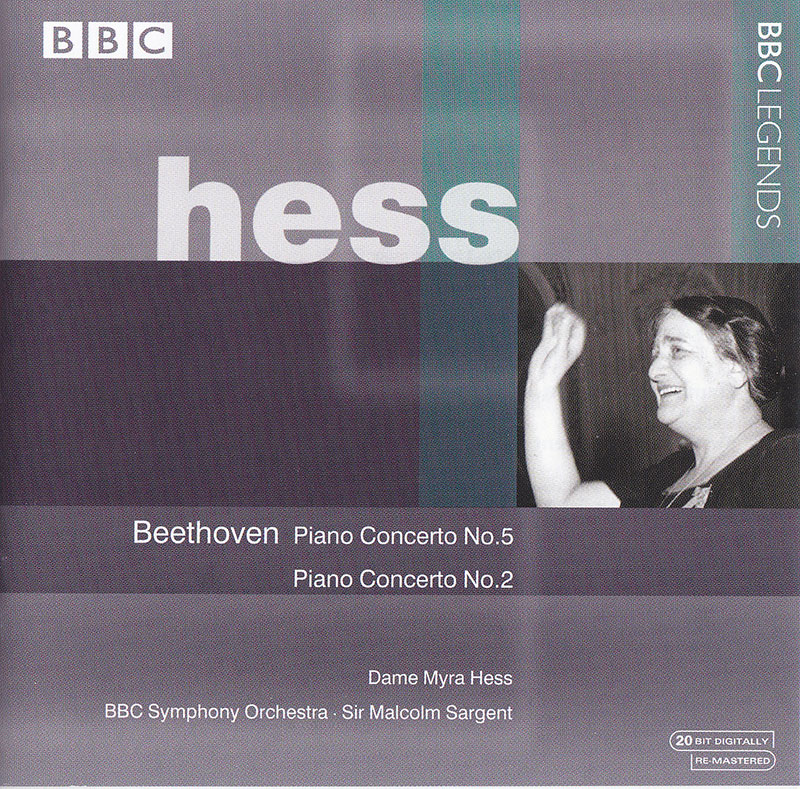Logowanie
Dziś nikt już tak genialnie nie jazzuje!
Bobby Hutcherson, Joe Sample
San Francisco
SHM-CD/SACD - NOWY FORMAT - DŻWIĘK TAK CZYSTY, JAK Z CZASU WIELKIEGO WYBUCHU!
Wayne Shorter, Freddie Hubbard, Herbie Hancock, Ron Carter, Elvin Jones
Speak no evil
UHQCD - dotknij Oryginału - MQA (Master Quality Authenticated)
Chesky! Niezmiennie perfekcyjny
Winylowy niezbędnik
ClearAudio
Double Matrix Professional - Sonic
najbardziej inteligentna i skuteczna pralka do płyt winylowych wszelkiego typu - całkowicie automatyczna
BEETHOVEN, Dame Myra Hess, Sir Malcolm Sargent
Piano Concerto No. 5 in E flat major, Op. 73 Emperor / Piano Concerto No. 2
- Beethoven - Dame Myra Hess Concerto for Piano and Orchestra No. 5 in E flat major, Op. 73 "Emperor" -
- 01. I. Allegro (20:29)
- 02. II. Adagio un poco moto (8:04)
- 03. III. Rondo. Allegro (10:38) Concerto for Piano and Orchestra No. 2 in B flat major, Op. 19 -
- 04. I. Allegro con brio (14:45)
- 05. II. Adagio (9:08)
- 06. III. Rondo. Allegro molto (6:23)
- 07. Interview (7:37)
- Dame Myra Hess - piano
- Sir Malcolm Sargent - conductor
- BBC Symphony Orchestra - orchestra
- BEETHOVEN
By Jed Distler on February 11, 2000in Myra Hess made surprisingly few commercial recordings for a pianist of her international stature. She hated the process and felt that only two or three items in her small discography did her justice. Fortunately, radio broadcasts and live concert tapes exist that considerably flesh out what we know of her artistry, as well as add to her recorded repertoire. The two BBC Beethoven concerto broadcasts from the Royal Albert Hall preserved here are cases in point. Hess rips into the “Emperor” concerto’s opening flourishes, projecting each and every note to the highest reaches of the balcony. Malcolm Sargent’s robust, energetic conducting further inspires his soloist to fuse power and poetry throughout the first movement. The 67-year-old pianist struggles a bit the first time those treacherous right hand thirds come around, but nails them solid at the recapitulation. I like how she charges full speed ahead in the development section’s octave scale exchanges between piano and orchestra without removing her foot from the accelerator. The slow movement sings with breadth and lyrical repose, yet never at the expense of strength and dynamism. Hess fearlessly ignites the finale’s bracing main theme, and it’s joyous sailing for the remainder of the movement. The slightly distant mono miking conveys a realistic sense of what the performance must have sounded like in the hall. Fine as the 1953 Hess/Efrem Kurz/New York Philharmonic “Emperor” broadcast may be (issued on Music and Arts), I now veer toward this version’s larger-scaled conception and communicative grip. Although it was recorded three years later, the B-flat concerto is hampered by mediocre sound. Hess specialists, though, will want to hear her stylish and witty approach to this underrated score. She takes unusual care bringing out the grace note in the Rondo’s main theme, and executes the unison octave runs with not a trace of labor. A seven-minute interview sequence preserves Dame Myra’s deeply pitched, drawn out voice as she answers John Amis’ queries with insight and a wicked sense of humor. Her affectionately scathing comments about Sir Thomas Beecham are worth the price of this important addition to Hess’ recorded legacy.


































